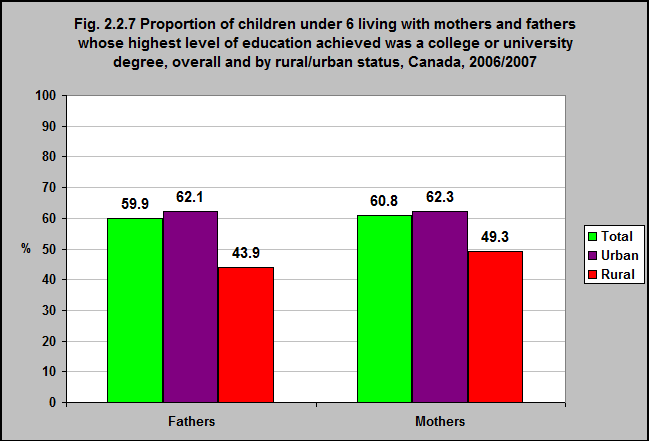Proportion of children under 6 living with mothers and fathers whose highest level of education achieved was a college or university degree, overall and by rural/urban status, Canada, 2006/2007

Source: CICH graphic created using data adapted from Government of Canada. The Well-Being of Canada’s Young Children. 2011. http://www.dpe-agje-ecd-elcc.ca/eng/ecd/well-being/sp_1027_04_12_eng.pdf – accessed June 30, 2017.
In 2006/07, approximately 60% of children under 6 lived with fathers whose highest level of education was a college or university degree; 61% of children under 6 lived with mothers who had a college or university degree.
These proportions increased from 2004/05 when they were 56% for fathers and 55% for mothers, respectively.1
There are differences with regard to whether or not young children live in urban or rural settings.
In 2006/07, 62% of young children in urban areas had mothers with a college or university degree compared with 49% of children living in rural areas. Those proportions were 62% and 44% for fathers, respectively.
1Government of Canada.The Well-Being of Canada’s Young Children. 2011.
Implications
Higher levels of parent educational attainment are strongly associated with positive outcomes for children in many areas, including school readiness, educational achievement, incidence of low birth weight, health-related behaviours including smoking and binge drinking, and pro-social activities. Children of more educated parents are also likely to have access to greater material, human, and social resources.2
2Child Trends Data Bank. 2015. https://www.childtrends.org/indicators/parental-education/
